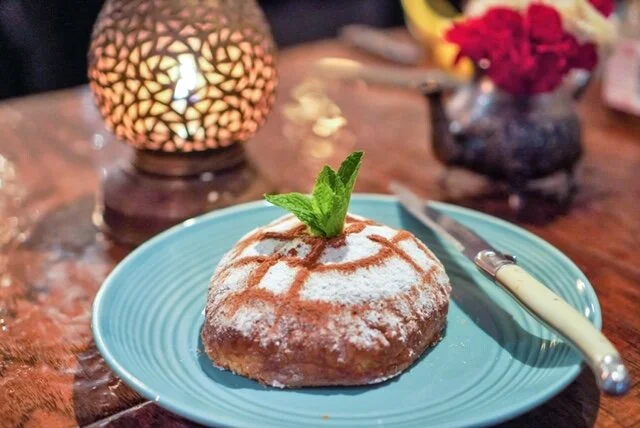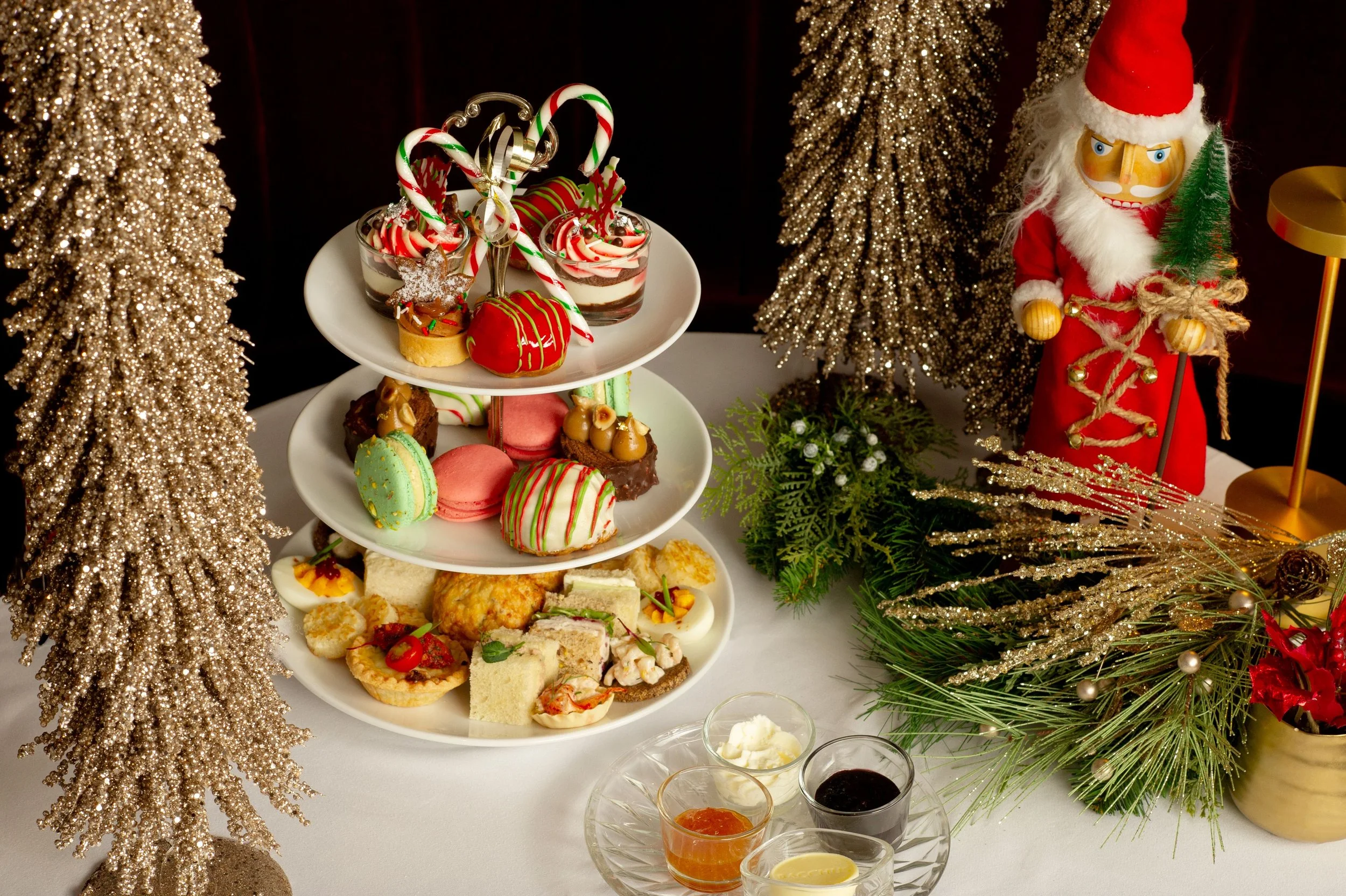Moltaqa brings the warmth and spice-laden flavours of Morocco to Vancouver
A new selection of traditional pastillas and baked goods makes for authentic dining
In Morocco, pastillas are served on special occasions. Moltaqa restaurant has recently introduced new variations. Photos by Mimo Bucko
ON VANCOUVER’S WEST Hastings Street near Abbott is a gateway to Morocco. Fragrant wafts of cinnamon, cumin, nutmeg, and ginger drift out from inside Moltaqa, a restaurant specializing in the spice-laden cuisine of the kingdom at the crossroads of Europe, the Middle East, and sub-Saharan Africa.
Jewel-like lanterns cast dazzling flecks of light on the walls, and elaborate silver teapots are ready to be filled with mint or hibiscus tea. Tagines in every colour—orange, red, green, and blue—rest on the tiled bar next to the open kitchen.
Moltaqa means “meeting place” in Arabic. Mimo Bucko opened the restaurant in 2018, serving dishes that resemble those you’d find in Marrakesh. There’s bessara, a hearty green-pea soup; zaalouk, a roasted-eggplant stew with preserved lemons, red pepper, and tomatoes; beef tagine with prunes and honey; and lamb shoulder with ras el hanout (“head of the shop”), a prized blend of herbs, roots, and leaves. Moltaqa’s version consists of 32 spices, including coriander, cardamom, and ginger. All of the meat is halal.
Zahra Tazarni prepares pastillas at Moltaqa.
Hana Alaoui makes khobz, a bread to scoop up tagine.
New to Moltaqa’s menu is an expanded selection of pastillas, traditional sweet-and-salty pies stuffed with chicken, seafood, or vegetables. (In Morocco, pigeon is another filling and is considered a delicacy.) Consisting of several layers of a delicate pastry called warqa, which resembles phyllo, the crispy pies are time- and labour-intensive to prepare. As far as Bucko knows, there’s nowhere else to find them in Vancouver. They’re made by two chefs who hail from Morocco.
Hana Alaoui is from Fez and learned to cook from her mother and grandmother, who taught her how to make semolina couscous by hand. Zahra Tazarni came to love preparing food through intergenerational family meals in her native Rabat; she remembers making chebakia, honey and sesame cookies in the shape of a rose that are now also found on the Moltaqa menu.
Chebakia are rose-shaped honey-and-sesame cookies.
“Cooking is passed on from generation to generation,” Bucko says. “Pastillas are made for special occasions, baby showers, weddings, or family events. They’re a symbol of appreciation for someone.
“Dining in Morocco is an event,” he says. “Women sing, pray, and tell stories while preparing food for hours. Sitting down for a meal connects family and friends and goes on for hours, starting with olives, bread, and harissa accompanied with atay—Moroccan mint tea—and finishing with pastries.”
Alaoui and Tazarni also make small batches daily of khobz, round, flattish loaves of semolina bread to scoop up tagine like steelhead trout with harissa. At the table, servers remove the lids of the conical vessels, wisps of steam rising up along with delicious aromas. The pots were traditionally made of earthenware and placed over a charcoal fire to cook; now most are made of metal or glazed ceramics and go in the oven or on stovetops. The cone-shaped lid allows steam to circulate and keeps food moist during cooking.
“Eating out in Morocco is an experience,” Bucko says. “That’s what Moltaqa is bringing to Vancouver.”
















